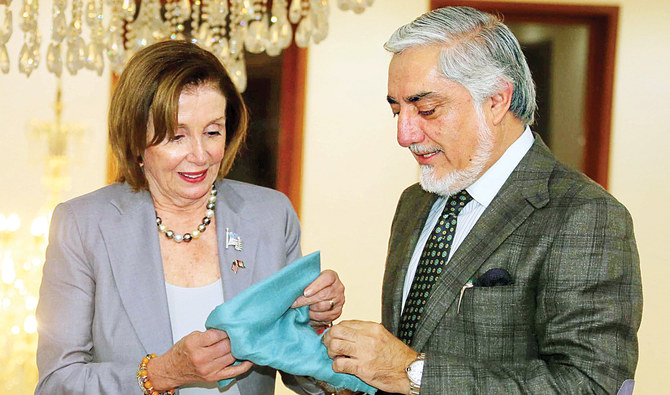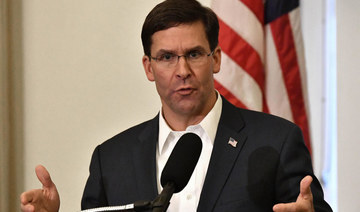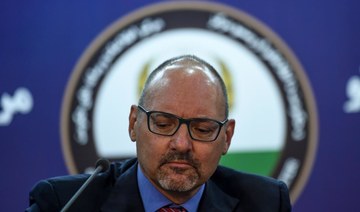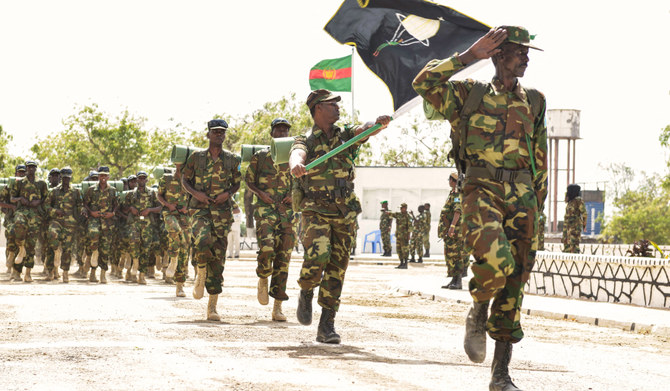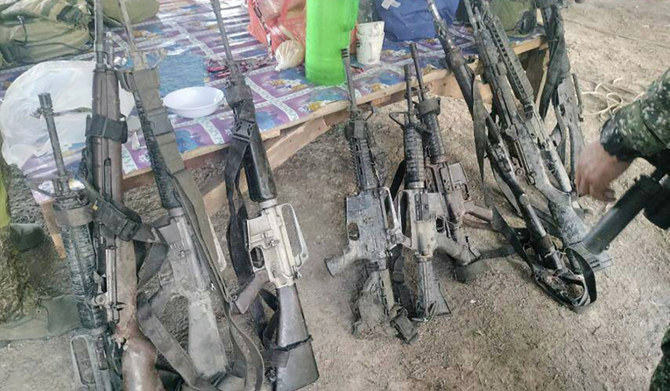KABUL: Top US officials including Defense Secretary Mark Esper and House of Representatives Speaker Nancy Pelosi are pushing for the revival of Afghan peace talks, despite President Donald Trump abruptly declaring the peace process dead.
Esper, who was making his first visit to Afghanistan as defense secretary, met President Ashraf Ghani and Chief Executive Dr. Abdullah Abdullah.
“The aim is to still get a peace agreement at some point, that’s the best way forward,” Esper told reporters who were traveling with him.
Multiple rounds of talks to end the fighting have been held between the Taliban and diplomats in a process led by US Special Representative Zalmay Khalilzad, with the Afghan government excluded at the insurgents’ insistence.
Pelosi, after meetings with Ghani and Abullah that were also attended by diplomats and the top US military commander in Afghanistan, said she had discussed the issue of peace talks with the Taliban.
“Our delegation received briefings from (US) Ambassador John Bass and other top diplomats on reconciliation efforts with the Taliban … We underscored that the women of Afghanistan must be at the table for reconciliation talks.”
Ghani discussed the Sept. 28 presidential election, bilateral matters and the peace process with Esper and Pelosi, his office said.
“Peace is a priority for us, a peace which is led and owned by Afghans and the values of the constitution and women are protected in it,” a presidential palace statement cited him as saying.
Abdullah said he was backing the revival of talks and was ready to make a sacrifice for “real peace.”
“During a fruitful meeting with Pelosi, we exchanged views on the credibility of Afghan elections, credibility requisites, prospects for peace/political settlement. Peace is one of the priorities of the Afghan people and we are supporting these efforts and I am ready for any kind of sacrifice for gaining real peace and for the cessation of war.”
He, unlike Ghani, did not emphasize the need for the peace talks to be owned and led by Afghanistan, but stressed on keeping the gains made since the Taliban was removed from power.
Trump tasked Khalilzad with finding a peaceful solution to the war and the eventual withdrawal of US troops from the country. However the process was thrown into chaos when the president tweeted last month that he was canceling peace talks with Taliban leaders at Camp David after the group claimed responsibility for a Kabul attack that killed a US soldier and 11 other people.
Khalilzad made a surprise stopover in Pakistan earlier this month at the same time that Taliban delegates were on a visit to the country and, according to foreign media reports, discussed the revival of peace talks with the group which the US had toppled from power more than 18 years ago.
Waheed Mozhdah, an analyst who knows the Taliban’s leaders, said the US had already established contact with the group and was keen to sign a deal but was concerned about a potential political crisis between rivals Ghani and Abdullah who are the main candidates in the presidential poll.
The vote was twice delayed, while the initial results of the ballot have not yet been disclosed due to technical issues.
“Now everything has to wait for the result of the election … it seems the Americans are concerned that if it signs the deal with the Taliban now and a crisis begins due to the election, then it will make America’s position weak,” he told Arab News.
“Through these trips, American officials are trying to persuade both sides (Abdullah and Ghani) to respect the result of the election so that when the time of intra-Afghan dialogue starts with the arrival of a new government, the Taliban does not argue that there is a crisis with the government.”
He said Esper’s comments about troop withdrawal was part of the deal Khalilzad had discussed with the Taliban before Trump’s interjection.
“Americans are confounded since Trump has come to power. First he pushed for the talks, then he canceled the talks and now wants them to be resumed,” he said.
Zubair Shafiqi, another analyst, said troop drawdown was a Trump goal that was aimed at his domestic audience and his re-election campaign next year.
He said Washington had come to the conclusion that the presidential election in Afghanistan would go to a second round, and that the visits by top US officials in recent weeks was aimed at telling leaders in Kabul that they had to brace for the formation of a broad-based interim set-up which should involve the Taliban too.
“I think Americans think that with the low turnout based on (last month’s) election, there will be no strong government in Afghanistan, so it is trying to convince the key sides that they have create a government in understanding with the Taliban,” he told Arab News.



